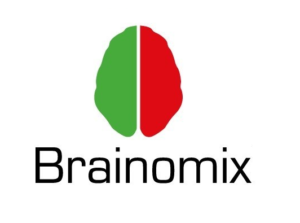 On the 8th of November 2019, during a symposium at the annual meeting of the Hungarian Neuroradiology Society (MNRT) in Mátraháza, Hungary, Bence Gunda shared results from his hospital which showed that treatment rates for stroke patients improved and treatment times were reduced following the installation of Brainomix’s e-Stroke Suite.
On the 8th of November 2019, during a symposium at the annual meeting of the Hungarian Neuroradiology Society (MNRT) in Mátraháza, Hungary, Bence Gunda shared results from his hospital which showed that treatment rates for stroke patients improved and treatment times were reduced following the installation of Brainomix’s e-Stroke Suite.
“The results of our assessment indicated that the treatment rates of both intravenous thrombolysis and mechanical thrombectomy increased once the e-Stroke Suite was installed, with thrombolysis rates increasing from 11.5% to 18.1%, and thrombectomy from 2.8% to 4.8%,” Gunda noted. “Moreover, there was an improvement in our door-to-needle times, as well as the CT-to-groin-puncture times, both important factors in the treatment pathway for stroke patients,” continued Gunda.
Gunda is a neurologist and associate professor based at the Department of Neurology at Semmelweis University in Budapest, which treats more than 700 stroke patients each year. According to a press release, Semmelweis is a primary stroke centre, able to deliver intravenous thrombolysis (IVT) to eligible patients. The stroke patients in need of mechanical thrombectomy (MT) treatment are transferred to OKITI in Budapest, where the procedure is performed by a team of trained specialists.
The e-Stroke Suite was installed at Semmelweis in May 2018, enabling the stroke team to automatically assess brain scans from stroke patients using the AI-driven software from Brainomix. To assess the impact of this technology on their stroke service, Gunda conducted an analysis comparing the same period of time the year prior to the installation of e-Stroke Suite to the period of time when the software was being used.
“The e-Stroke Suite increased our team’s confidence when they are interpreting brain scans, accelerated our decision-making, and expedited image sharing with the team at OKITI,” Gunda observed. George Harston, chief medical & innovation officer at Brainomix, added: “Their results are indicative of the impact that our technology can have on a stroke network, helping physicians make faster decisions so that more patients can get the optimum treatment.”












